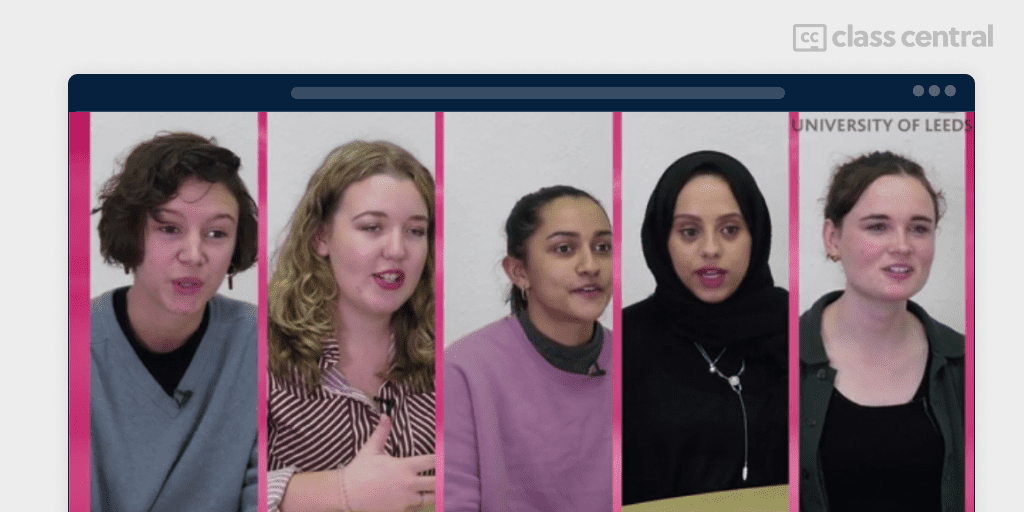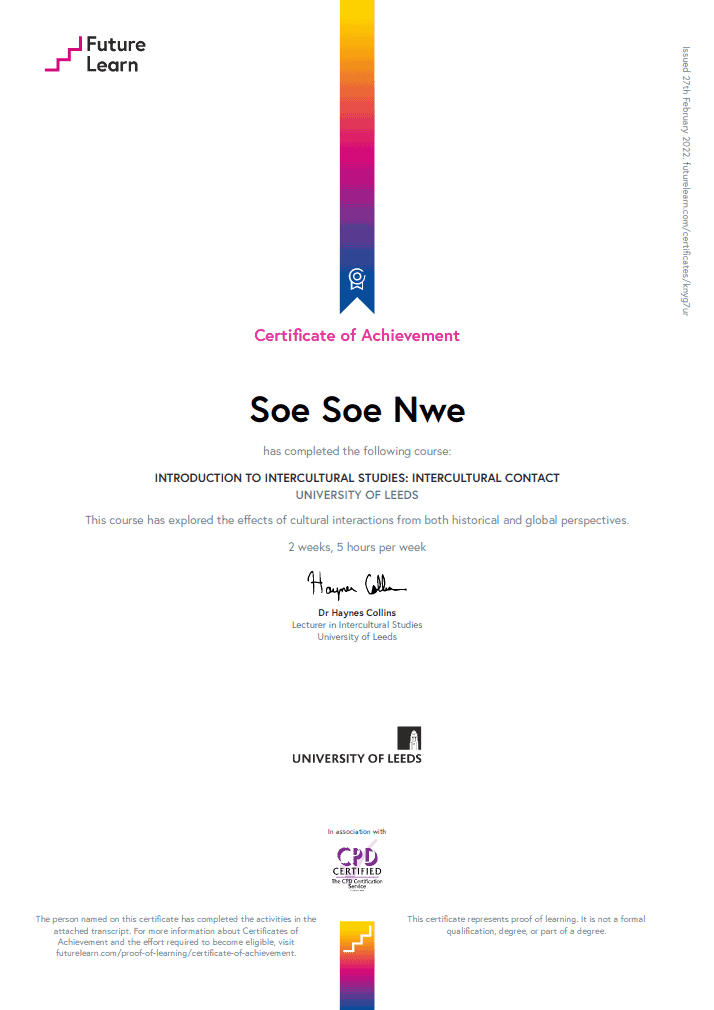Leeds’ Course review: Intercultural Contact
Reflect on your own life experiences and analyze them with the intercultural studies’ point of view.

I’d like to talk about a course I really enjoyed: Introduction to Intercultural Studies: Intercultural Contact by University of Leeds. The course is profound and well-structured; it is made for those who are interested in communicating with people from different cultures and developing intercultural competence.
Why I took this course
In 2015 and 2016, I attended workshops on Intercultural Communication Modules recommended for Third Year Honors & MA Qualifying Classes: Tertiary Level students under the guidance of the Ministry of Education’s Boards of Studies in Myanmar.
My interest increasingly grows whenever I teach this module and discuss cultural issues with students at different universities. Additionally, I was transferred as a lecturer to Panglong University in Southern Shan State, Myanmar in the academic year of 2018 and had a chance to encounter the ethnic group: Pa’O people, which piqued my interest once again to learn their cultural practices. More recently, even during the pandemic and coup in my country, some learners and I kept learning with the strength of the FutureLearn saying: “Never Stop Learning”.
Based on my experience, I decided to take Introduction to Intercultural Studies: Intercultural Contact course despite going through some problems with electricity and unstable internet connection. However, I had no other difficulties while taking the course. Nevertheless, taking the course with unlimited time and appropriate resources would be better.
It was worthwhile taking this course because I had the opportunity to refresh rich experiences and analyze them with the intercultural studies’ point of view. Honestly, I’d like to do research, projects, and studies concerning intercultural concepts.
Instructors
Dr Haynes Collins is an Associate Professor in Intercultural Studies at the University of Leeds and an expert in the areas of Intercultural Studies and Intercultural Communication. He is also a good interculturalist who could construct an ethical orientation for the understanding and practices in a particular context.
Success
Try to get familiarized with intercultural terms in the course and analyze your past experiences critically by writing assignments and taking the test. If so, you are sure to succeed in the course. After this course, I hope you will get the readiness to monitor your thought processes and reconsider how you see people and be able to bracket prejudgements and assumptions in communicating with others.

The Course, Grading and Time Commitment
This is a two-week course and each week has activities including video lectures, articles, discussion forum, test exercises, writing assignments, and reviews on your peer’s assignments. The course essential terms are included in the glossary. Moreover, you will be familiar with the words and cultural terms by reflecting on your own experiences after watching the videos, reading the articles and participating in the discussion accordingly. Then, to get a better understanding, you have to answer the quizzes and take the test. Here also, the idea appealing to me is providing educator feedback and it really helps the clarity of the terms and the concepts of the course.

One thing I love about the course is that I have got a chance to do ethnographic study as a research task in week 2. I appreciate the guidelines to give a comprehensive review, test rules, and to answer graded questions. The exciting moment for me is the waiting time for getting a review and reflection on the submitted assignment.
If the learner wants a certificate, they need to go through 90% of the steps as complete and have an overall score of at least 70%. As for me, more hours were needed to make time for reflection to look back on our experiences than the syllabus suggested.
What’s Next?
Here are some courses with similar content to take next:
- Introduction to Intercultural Studies: Defining the Concept of Culture (University of Leeds)
- Introduction to Intercultural Studies: Language and Culture (University of Leeds)
- Intercultural Competency in Education (University of Iceland)
- Communicating across Cultures (British Council)
- Intercultural Communication and Conflict Resolution (University of California, Irvine)
Conclusion
Take this course if you enjoy looking back at the rich points of your past intercultural experiences.







